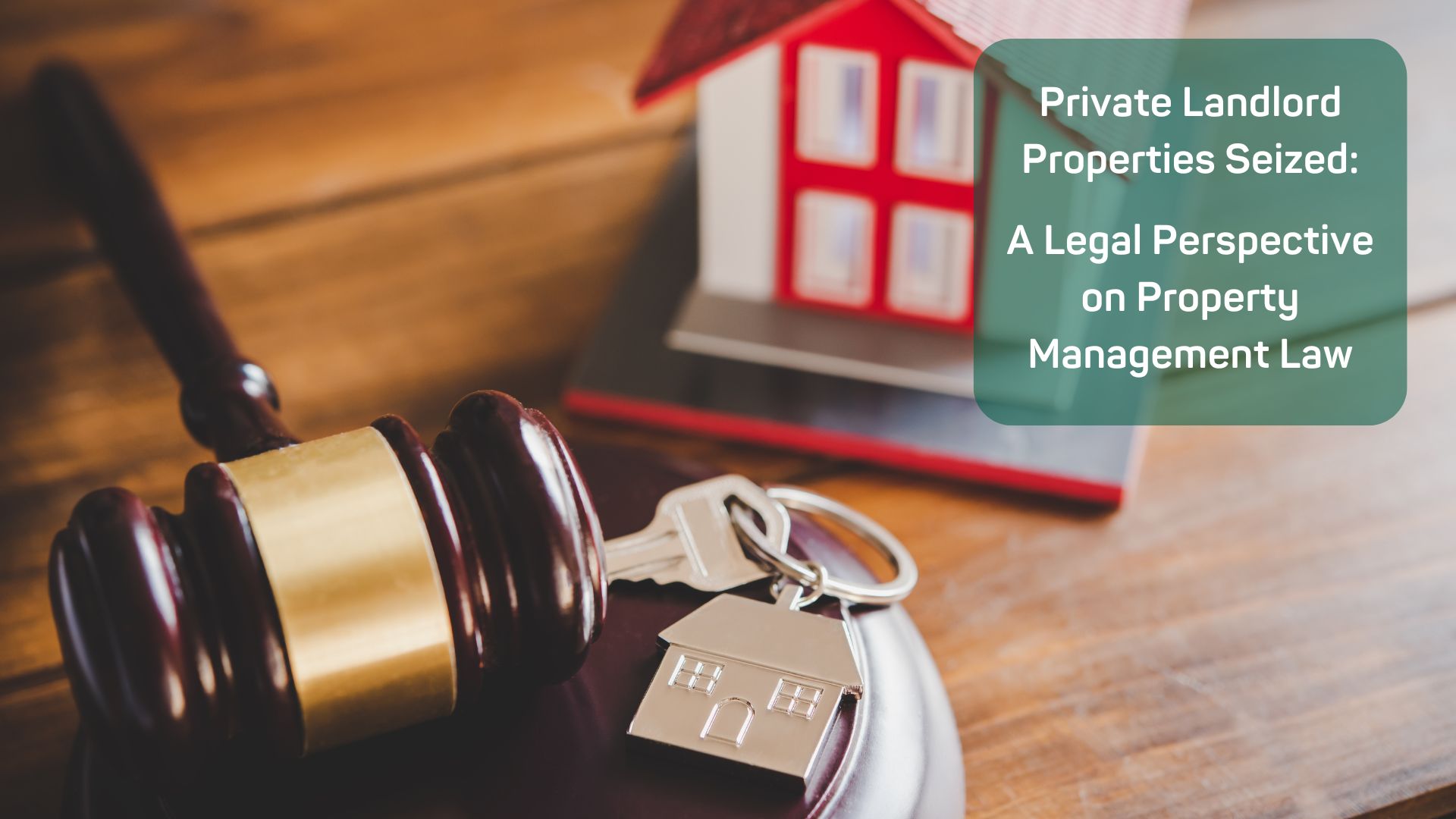Private Landlord Properties Seized: A Legal Perspective on Property Management Law
September 24th, 2024, Blog, News
Private Landlord Properties Seized: A Legal Perspective on Property Management Law
In a recent high-profile case, a private landlord had multiple properties seized due to non-compliance with housing regulations. This event underscores the increasing scrutiny on landlords and the critical importance of adhering to legal and regulatory standards in the rental market. For landlords, understanding the legal framework governing property management is essential to avoid severe consequences such as property seizure, fines, or legal action. Property management law plays a pivotal role in ensuring that landlords meet their obligations.
The Legal Framework Governing Property Management Law
The legal obligations for landlords in the UK are extensive and designed to protect tenants’ rights, ensure safe living conditions, and maintain the integrity of the rental market. Property management law encompasses key regulations that landlords must follow, including:
- Housing Health and Safety Rating System (HHSRS):
- The HHSRS is a risk-based evaluation tool used to assess potential hazards in residential properties. Landlords are legally required to ensure that their properties meet health and safety standards as defined by this system. Failure to comply with HHSRS can result in enforcement actions, including property seizures, under property management law.
- Tenancy Agreements and Licensing:
- Property management law mandates that landlords provide tenants with a legally binding tenancy agreement outlining the terms and conditions of the rental arrangement. In certain areas, landlords are also required to obtain a license to rent out properties, ensuring that they meet local housing standards.
- Right to Rent Checks:
- Landlords are legally obligated to verify that all tenants have the right to rent in the UK. This involves checking immigration status and maintaining records of these checks. Non-compliance with these checks, as outlined in property management law, can result in penalties and fines.
- Energy Efficiency Standards:
- The Minimum Energy Efficiency Standards (MEES) require landlords to ensure their properties meet specific energy efficiency criteria. Properties that fail to comply with MEES may be subject to fines, and landlords could be prohibited from renting out such properties until improvements are made. Compliance with energy standards is a crucial aspect of property management law.
- Repairs and Maintenance Obligations:
- Property management law stipulates that landlords are legally responsible for maintaining the structural integrity and safety of their properties. This includes conducting regular inspections, addressing tenant complaints, and making necessary repairs promptly. Failure to fulfill these obligations can lead to legal disputes and enforcement actions.
Legal Consequences of Non-Compliance with Property Management Law
The recent case of property seizure serves as a stark reminder of the legal consequences that landlords face when they fail to meet their obligations under property management law. Enforcement actions can include:
- Property Seizure:
- As demonstrated in this case, properties can be seized by local authorities if they are found to be non-compliant with housing regulations. This is often a last resort when landlords repeatedly ignore notices and fail to make required improvements.
- Fines and Penalties:
- Landlords may face significant fines for non-compliance with regulations such as the HHSRS, MEES, or licensing requirements. These fines can accumulate, leading to substantial financial losses.
- Legal Action and Tenant Compensation:
- Tenants who suffer as a result of a landlord’s non-compliance with property management law may take legal action to seek compensation. This can include claims for damages related to poor living conditions, health issues caused by unsafe housing, or unlawful eviction practices.
- Reputational Damage:
- Beyond the financial and legal consequences, non-compliance with property management law can severely damage a landlord’s reputation, making it difficult to attract new tenants and maintain positive relationships with local authorities.
The Role of Local Authorities and Legal Enforcement in Property Management Law
Local authorities play a critical role in monitoring compliance with housing regulations and enforcing property management law. They have the power to conduct inspections, issue improvement notices, and take enforcement actions such as property seizure when landlords fail to comply. Legal enforcement under property management law is essential to maintaining a fair and safe rental market, protecting tenants from substandard living conditions, and ensuring that landlords uphold their legal responsibilities.
Conclusion
The seizure of properties from a non-compliant landlord highlights the importance of understanding and adhering to the legal framework governing property management. Landlords must take their legal obligations seriously to avoid severe consequences, including property seizure, fines, and legal disputes.
If you are a landlord concerned about your compliance with property management law or need legal advice on property management, our team of experts at GSC Solicitors is here to help. Contact us today to ensure that your properties meet all legal standards and avoid costly penalties.
Have a question?
For every part of your life and business, talk to GSC
GSC Solicitors LLP
31-32 Ely Place, London EC1N 6TD
DX: 462 London/Chancery LN (View on map)

